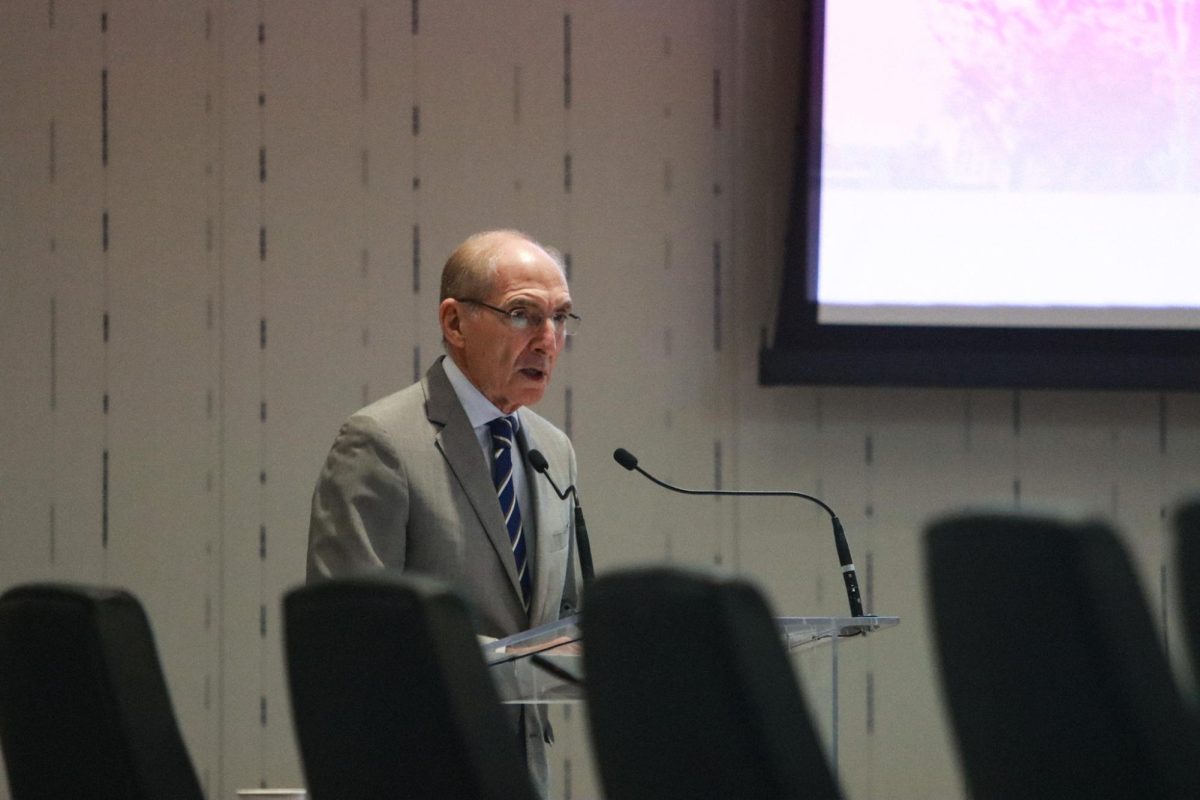Bevin’s focus on STEM education could help biggest Lexington employers
February 7, 2016
Faculty and professionals criticized Matt Bevin’s recent push for science, technology, engineering and math in universities, but some Lexington employers may benefit from a focus on STEM education.
Bevin proposed “outcomes-based funding,” which would have universities compete for shares of a pool of money allocated to universities that focus on training students to work in math, engineering and other STEM fields.
While Bevin said students would still be able to study liberal arts — he used French literature as an example — those majors would not receive subsidies from the state like STEM departments would.
While Bevin received criticism from some in the liberal arts community, technology companies could benefit from a larger and stronger workforce aided by the proposed funding incentives.
According to M.B.A. Today, many of Lexington’s largest employers focus on technology and science, with Toyota Motor Manufacturing being the second largest employer and Lexmark International being the fifth largest.
Vice President of Corporate Communications at Lexmark Jerry Grasso said Lexmark hires more people with STEM education backgrounds than liberal arts backgrounds.
Lexmark hosts science and engineering fairs for middle and high school students. Paul Rooke, the chairman and CEO of Lexmark International, began his career as a manufacturing engineer at IBM.
Lexington’s other top employers include UK, Fayette County Public Schools and hospitals like Central Baptist Hospital and St. Joseph Hospital.
Smaller employers, though, could suffer if universities shift resources from liberal arts departments to science and math.
Dabney Parker, resource developer at Kentucky Refugee Ministries, said her organization needs people who have management and language skills.
While Parker said STEM degrees are important, she said technology has connected the world more than ever before, making language and cultural knowledge more valuable and more necessary.
“Having a strong math or engineering background is not going to be necessarily helpful in working with folks from Africa or Iraq. It’s more the relational skills, I think,” Parker said. “It’s not to say the people that have the STEM (degrees) aren’t kind, creative folks, but those are not the skills we’re looking for. We look for folks with social work type backgrounds, good people skills, good management skills and flexibility.”
Bevin said his plan would focus on creating college graduates equipped with the skills employers want. The majority of Lexington’s top companies — mostly hospitals and technology companies — focus their hiring on STEM rather than liberal arts.
UK French literature professor Jeffrey N. Peters in an op-ed criticized Bevin by saying, “Who decides what ‘things people want,’ by the way?”






























































































































































